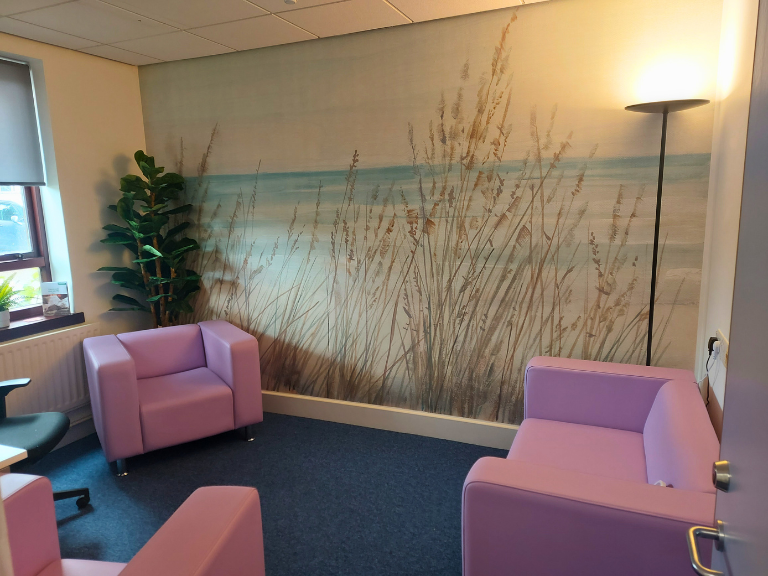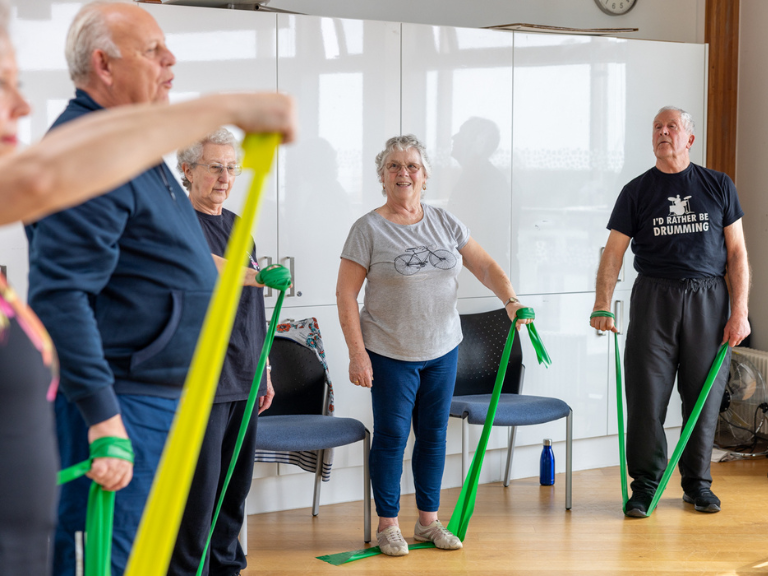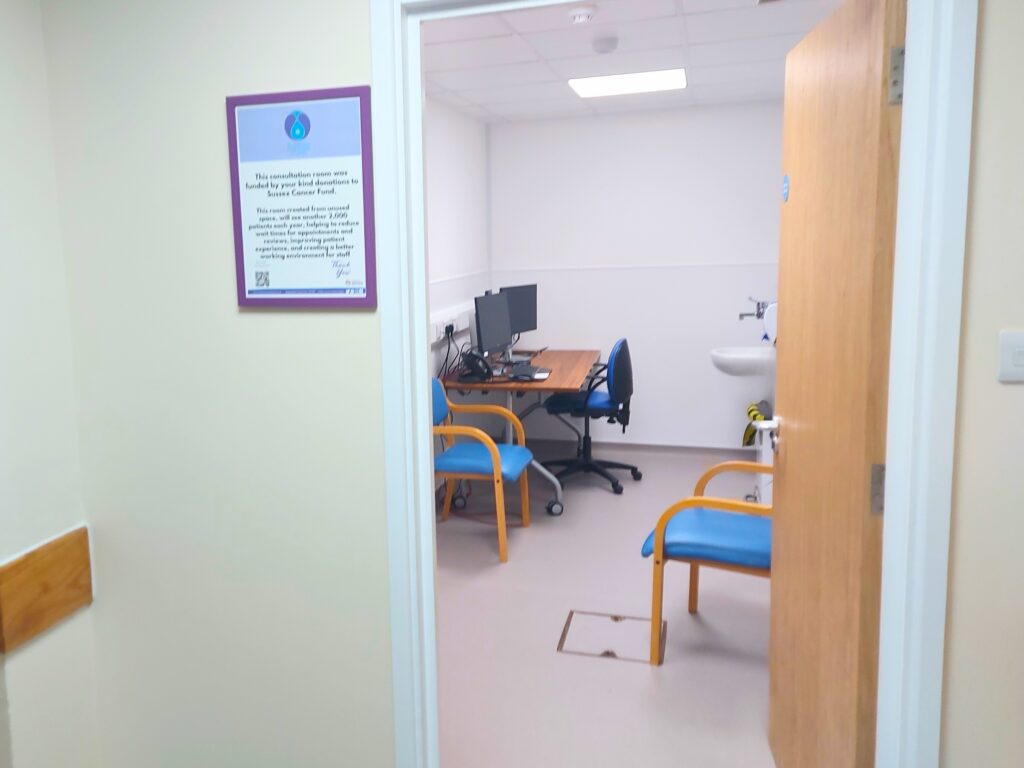 The Research Practitioner Role funded by the Sussex Cancer Fund enables the trust to take part in many clinical trials and research projects. This not only helps national and international cancer research projects but also gives, where appropriate, some cancer patients access to new clinical trials and treatment. We caught up with Rachel Edmunds, to find out what she does and to hear about some of the projects her role allows the hospital to contribute towards.
The Research Practitioner Role funded by the Sussex Cancer Fund enables the trust to take part in many clinical trials and research projects. This not only helps national and international cancer research projects but also gives, where appropriate, some cancer patients access to new clinical trials and treatment. We caught up with Rachel Edmunds, to find out what she does and to hear about some of the projects her role allows the hospital to contribute towards.
Rachel Edmunds, Research Practitioner
“The Role of Research Practitioner:
Working in the role of a Research Practitioner in the Cancer and Haematology team, I support an ever evolving and changing portfolio of research studies.
Some of the main duties I perform are:
• Looking through databases and patient lists to identify potential study participants
• Checking patient details again defined eligibility criteria within the study protocol.
• Introducing research opportunities to patients.
• Meeting with patients to discuss studies, to ensure they understand the implications and to conduct the informed consent and recruitment processes.
• Many studies include sample collection such as blood and urine, specific measurement such as blood pressure and weight and the completion of Questionnaires.
Some of the projects we are involved in:
The studies I oversee are at Brighton and Sussex Universtity Hospitals NHS Trust (BSUH) are:
The RAPPER study (Radiogenomics: Assessments of Polymorphisms for Predicting the Effects of Radiotherapy) looks at the side effects from radiotherapy as well as the variations in patient’s DNA which are present in everyone. The study is designed to examine why some patients experience severe side effects, whereas others do not. Identification of genetic markers for the sensitivity to radiotherapy will hopefully lead to blood tests used to tailor a patient’s radiotherapy to the individual, so they can receive affective treatment with the least amount of side effects.
The UKGPCS (UK Genetic Prostate Cancer Study) is a study looking at the family history of gentlemen who have been diagnosed with prostate cancer at a young age. The study aims to detect the DNA responsible for the pre-disposition. This study also looks at the life style choices of these patients, looking to find trends.
CLOCS (Cancer Loyalty Card Study) looks, retrospectively, at patient purchases with loyalty cards in Tesco and Boots to see if there is a correlation with the onset of symptoms linked to ovarian cancer such as constipation or bloating. By looking at the over the counter medicine a patient has purchased leading up to diagnosis, it is hoped that patterns can be picked up on earlier, leading to earlier intervention with better outcomes.
I also support the Developing New Tests for Ovarian Cancer study. This involves taking urine and blood samples from ladies newly diagnosed with ovarian cancer and looking for markers which can lead to new simple tests for ovarian cancer which could be easily performed through GP surgeries.
I have been working on the NICE FIT study (NICE (National Institute for health and Care Excellence) Guidelines + the place of the Faecal Immunochemical Test as a triage tool for predicting bowel cancer). This was a stool sample collection study for patients to collect at home prior to a planned colonoscopy. This FIT test is hoped to be used more often in the future to detect bowel cancer and reduce the need for colonoscopies.
Supporting patients through decision making related to research participation and protocol interventions is by far my favourite part of being a Research Practitioner. Whether it be talking to potential participants on the phone, meeting face to face before or after a scheduled hospital visit or planned visit to see me in a research clinic.
I do spend a lot of time updating spread sheets and maintaining databases.
I really enjoy my work. Many patients feel research participation is a way of giving something back in return for the care and treatment they have received. It has been a pleasure to experience this with them.”
If you would like to help us fund more roles like Rachel’s or support more research projects please use the button below


